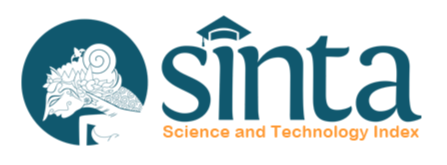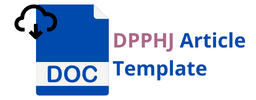An Analysis on the Implementation of Posbindu PTM Program at Beringin Raya Community Health Center Bengkulu
DOI:
https://doi.org/10.12928/dpphj.v15i1.2841Keywords:
analysis, implementation, Posbindu PTM programAbstract
Background: The implementation of Integrated Health Post or Pos Binaan Terpadu (Posbindu) Program for Non-Communicable Diseases is an effective and efficient strategy to control risk factor. The low interest in visiting Posbindu was shown from the number of visits that decreased in 2017 (75.4%) and 2018 (64.4%). This study aims to analyze the Integrated Health Post for Non-Communicable Diseases or Pos Binaan Terpadu Penyakit Tidak Menular (Posbindu PTM) program at Beringin Raya Community Health Center in Bengkulu. Method: This study used qualitative and descriptive approach, and was conducted in March-August 2020 using in-depth interview techniques. Results: The implementation of the Posbindu program was in accordance with the Standard Operating Procedures (SOP). Funding for this program came from the Health Operational Assistance. However, it was not sufficient. Posbindu activities were held once a month and used 5 steps system (registration, health interviews, health checks, referrals, and health education). The examination results was only recorded on the visiting book, and they did not have specific monitoring tools. The supervision of the implementation and the evaluation were discussed in the monthly mini workshop. In addition, the facilities and infrastructure were still inadequate. There was a shortage medicine supplies, and the community participation in Posbindu PTM was still low. Conclusion: Posbindu PTM has been implemented according to the SOP, but the overall implementation such as funding, drug procurement, infrastructure, and the number of Posbindu visits is still insufficient.
References
2. Kemenkes RI. Rencana Aksi Kegiatan Pengendalian Penyakit Tidak Menular. Ditjen Pencegah Penyakit dan Penyehatan Lingkungan, Kementeri Kesehat RI. 2017;43.
3. Usman Y, Iriawan RW, Rosita T, Lusiana M, Kosen S, Kelly M, et al. Indonesia’s sample registration system in 2018: A work in progress. J Popul Soc Stud. 2018;27(1):39–52.
4. Kementerian Kesehatan RI. Pedoman Umum Pos Pembinaan Terpadu Penyakit Tidak Menular. Edisi satu cetakan ke dua. Ditjen Pengendalian Penyakit Tidak Menular. Kementerian Kesehatan RI;2014;
5. Kemenkes RI. Profil Kesehatan Indonesia Tahun 2019. Kementeri Kesehat RI. 2020;42(4):1.
6. Kemenkes RI. Petunjuk Teknis Pos Pembinaan Terpadu Penyakit Tidak Menular (Posbindu PTM). Ditjen Pengendali Penyakit dan Penyehatan Lingkungan, Kementeri Kesehat RI. 2012;1–39.
7. Puskesmas Beringin Raya. Data Pelaksanaan Posbindu Puskesmas Beringin Raya 2020. Bengkulu.
8. Anita B, Febriawati H, Yandrizal Y. The Role of Public Health Centers (Puskesmas) as the Gatekeeper of National Health Insurance. J Kesehat Masy. 2016;12(1):76–89.
9. Annisa N. Analisis Pelaksanaan Pos Pembinaan Terpadu Penyakit Menular di Wilayah Kerja Puskesmas Polonia Kecamatan Medan Polonia tahun 2016. J Kesehat Masyarakat Jur Ilmu Kesehat Masy Univ Sumatera Utara Medan. 2016;1(2):6–38.
10. Suhbah. WD Alviana, Suryawati. Chriswardani KW. Evaluasi Pelaksanaan Program Pos Pembinaan Terpadu Penyakit Tidak Menular (Posbindu Ptm) Puskesmas Sukolilo I Kabupaten Pati. J Kesehat Masyarakat FKM UNDIP. 2019;7(4):647–57.
11. Nugraheni WP, Hartono RK, Humaniora P, Kesehatan M, Penelitian B, Kesehatan P, et al. Strategi Penguatan Program Posbindu Penyakit Tidak Menular Di Kota Bogor Strengthening Strategies of Posbindu Program for Noncommunicable Diseases in Bogor City. J Ilmu Kesehat Masy. 2018;9(3):198–206.
12. Yanti. Nurul Evi, Lubis. Namora Lumongga DVE. Analisis Implementasi Kebijakan Puskesmas Dalam Program Pos Pembinaan Terpadu Penyakit Tidak Menular. The Indonesian Journal of Health Promotion. 2019;2(3):174-180.
13. Putri RE, Hubayah H, Asparian A. Evaluasi Proses Implementasi Posbindu PTM Di Wilayah Kerja Puskesmas Simpang Sungai Duren Kecamatan Jambi Luar Kota Kabupaten Muaro Jambi Tahun. J Kesmas Jambi. 2018;2(1):12–27.
14. Alfiyah A, Pujiyanto P. an Analysis on the Implementation of the Integrated Guidance Post (Posbindu) Activities for Non-Communicable Diseases At Bogor City in 2018. J Indones Heal Policy Adm. 2019;4(1):11–5.
15. Pranandari. LA, Arso. SP FE. Analisis Implementasi Program Pos Pembinaan Terpadu Penyakit Tidak Menular (Posbindu Ptm) Di Kecamatan Banguntapan Kabupaten Bantul. J Kesehat Masy. 2017;5(4):76–84.
16. Febriawati. H, Angraini. W, Lina. LF, Oktarianita, Pratiwi. BA, Safarudin, Suryani. D Y. Analisis of Indonesian Health Program throught Family Aproach (PIS-PK) in the Working Area of Public Health Center of Jalan Gedang. Pakistan J Med Helth Sci Pakistan. 2020;14(1):581-585.
17. Febriawati H, Alfansi L, Hadi ED, Ab SA. The role of management function to the achievement of Puskesmas indicator as a gatekeeper of national health guarantee in Bengkulu City. Indian J Public Heal Res Dev. 2018;9(9):353–7.
18. Irmawati. Refiola , Wigati. PA AS. Analisis Pelaksanaan Program POS Pembinaan Terpadu Pnyakit Tidak Menular Di Wilayah Kerja Puskemas Srondol Kulon, Kota Semarang (Studi Kasus Di Rw 13, Kecamatan Srondol Wetan, Kelurahan Banyumanik). J Kesehat Masy. 2018;6(1):57–70.
19. Kiting RP, Ilmi B, Arifin S. Faktor Yang Berhubungan Dengan Kinerja Kader Posbindu Penyakit Tidak Menular. J Berk Kesehat. 2017;1(2):106.
20. Maryaningsih. Hubungan persepsi dan kebutuhan masyarakat terhadap pemanfaatan pos pembinaan terpadu Di puskesmas helvetia medan. Gentle Birth Journal. 2020;3(1):30-37.
Downloads
Additional Files
Published
Issue
Section
License
Authors transfer the copyright and grant the Disease Prevention and Public Health Journal right of first publication with the work simultaneously licensed under a Creative Commons Attribution License (CC BY-SA 4.0) that allows others to share (copy and redistribute the material in any medium or format) and adapt (remix, transform, and build upon the material) the work for any purpose, even commercially with an acknowledgement of the work's authorship and initial publication in Disease Prevention and Public Health Journal. Authors are able to enter into separate, additional contractual arrangements for the non-exclusive distribution of the journal's published version of the work (e.g., post it to an institutional repository or publish it in a book), with an acknowledgement of its initial publication in Disease Prevention and Public Health Journal. Authors are permitted and encouraged to post their work online (e.g., in institutional repositories or on their website) prior to and during the submission process, as it can lead to productive exchanges, as well as earlier and greater citation of published work (See The Effect of Open Access).

This work is licensed under a Creative Commons Attribution-ShareAlike 4.0 International License.







